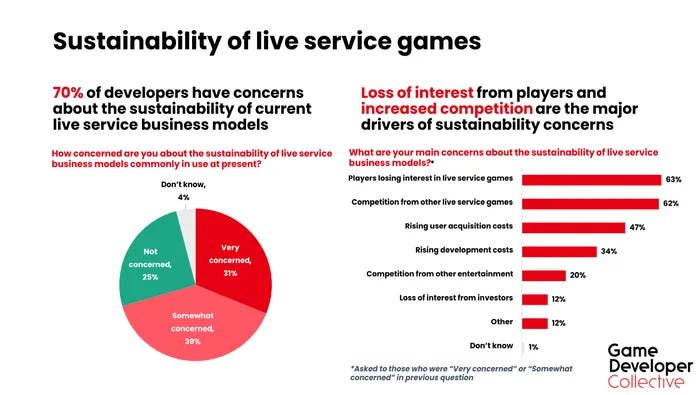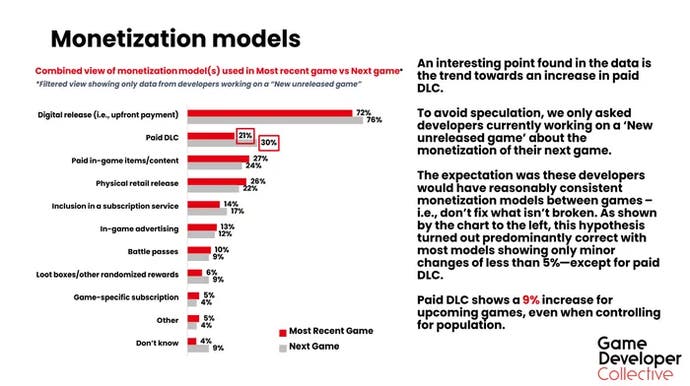The results of a new survey conducted by Game Developer Collective have been released, with the survey focused on the sustainability of live service business models in modern games.
A pool of 600 developers took part in the survey over a period of two months, and were asked for their thoughts on live service games as defined by online-enabled titles that receive frequent updates and include in-game purchases as part of their model. The survey is unfortunately (and aptly) locked behind a subscription paywall, but Eurogamer has shared some of the results and key insights here.
The results show that a whopping 70% of those interviewed are concerned in some way about the sustainability of live service game business models in their current form, which is made up of 31% of developers being “very concerned,” 39% being “somewhat concerned” and the rest either not worried or not sure.
Some of the leading drivers of these concerns include a general loss of player interest over time, competition from other live service games and the rising costs associated with development and actually bringing players into the games.

Image: Game Developer Collective / Eurogamer
On the flipside, the survey found an increasing interest in paid DLC as as model of monetisation, with 30% of developers actively working on a new game saying they’re looking at paid DLC for their titles, which is a significant jump up from 21% in Game Developer Collective’s previous findings.

Image: Game Developer Collective / Eurogamer
It’s certainly going to continue to be a contentious topic, with game development itself seeing something of a crisis against astronomical development costs and a ruthless couple of years of acquisitions and layoffs. And while executives and CEOs seem to continue to look to the live service model and the handful of games that have made it work as a means to growth, surveys like this and examples like the disappointing Suicide Squad: Kill the Justice League make it increasingly clear that it’s not what players or developers truly want.



